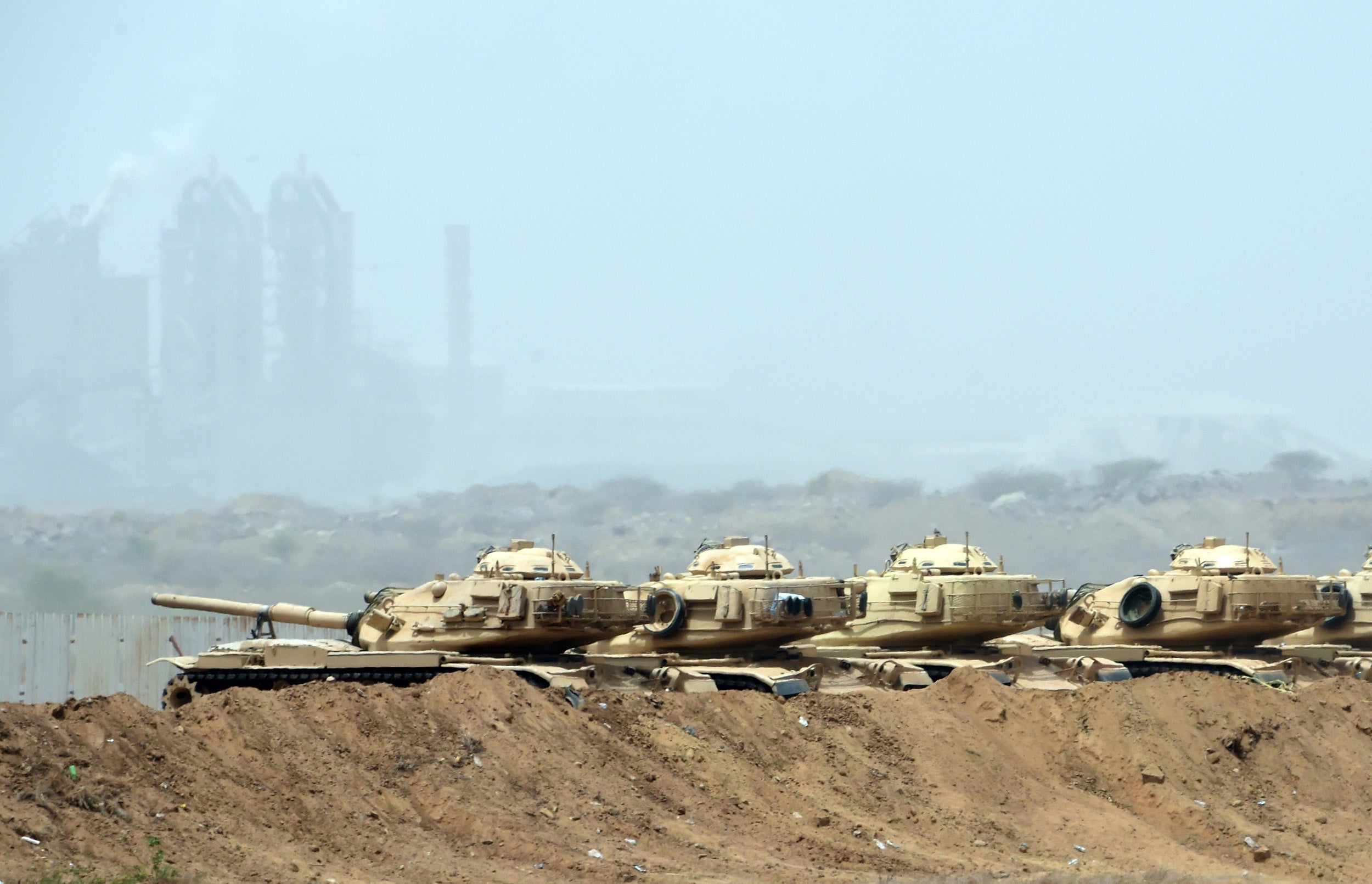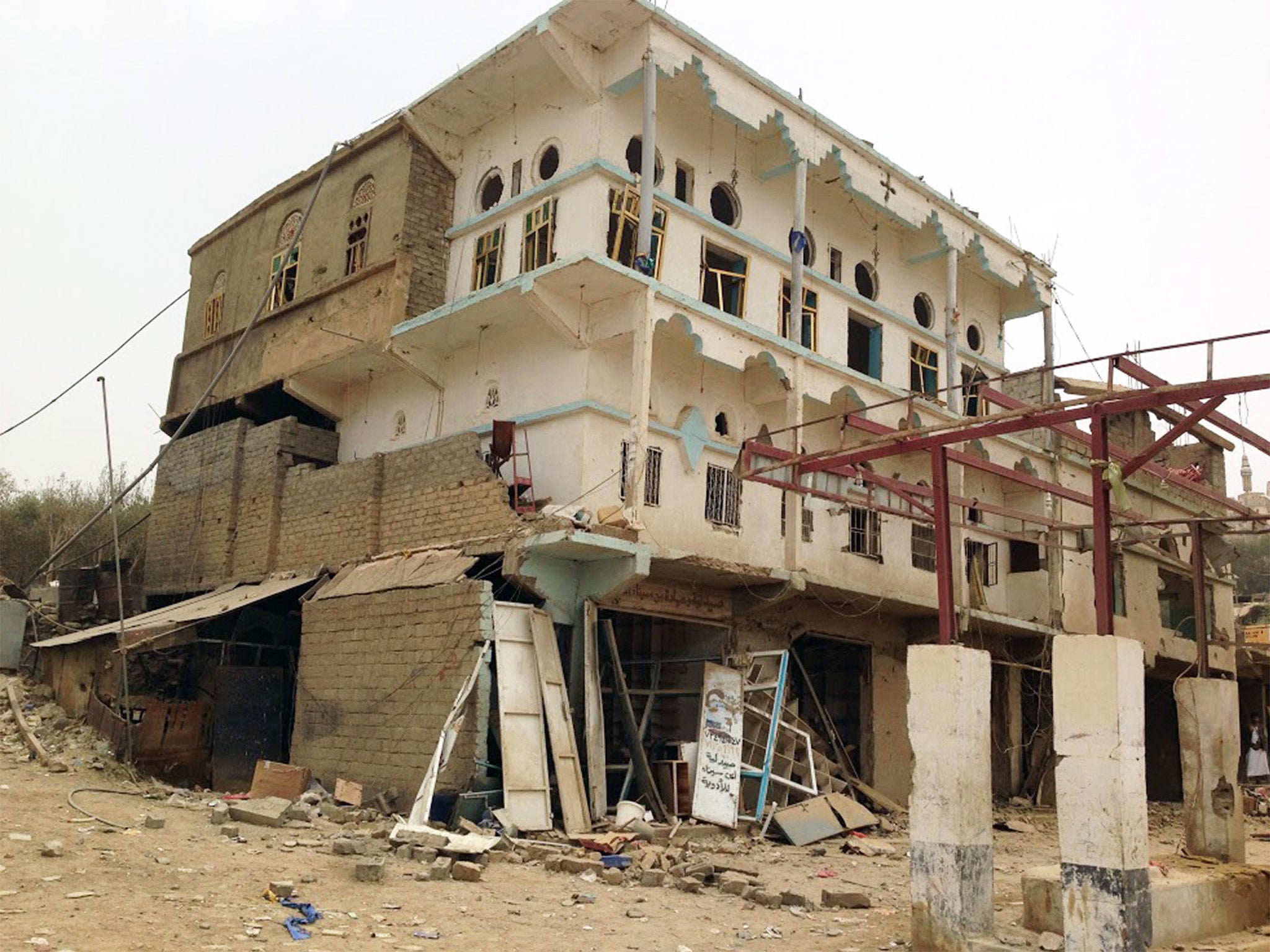British arms companies ramp up bomb sales to Saudi Arabia by 100 times despite air strikes on civilians
The United Nations has said Saudi Arabia is disproportionately killing civilians in its military operation in Yemen

Your support helps us to tell the story
From reproductive rights to climate change to Big Tech, The Independent is on the ground when the story is developing. Whether it's investigating the financials of Elon Musk's pro-Trump PAC or producing our latest documentary, 'The A Word', which shines a light on the American women fighting for reproductive rights, we know how important it is to parse out the facts from the messaging.
At such a critical moment in US history, we need reporters on the ground. Your donation allows us to keep sending journalists to speak to both sides of the story.
The Independent is trusted by Americans across the entire political spectrum. And unlike many other quality news outlets, we choose not to lock Americans out of our reporting and analysis with paywalls. We believe quality journalism should be available to everyone, paid for by those who can afford it.
Your support makes all the difference.British arms companies have cashed-in on Saudi Arabia’s military campaign in Yemen by ramping up arms sales to the country’s autocratic government by over a hundred times, new figures show.
Sales of British bombs and missiles to the Saudi Arabia surged to over £1bn just three months last year, according to an official record of arms export licences quietly released by the Government this week.
The sales, up from just £9m in the preceding three-month period, have occurred while the oil-rich autocracy conducts a military campaign in its neighbour’s territory, where the United Nations has said a “humanitarian catastrophe” is unfolding.
Saudi Arabia is intervening in Yemen to fight Houthi rebels, who control the country’s capital but are not internationally recognised as its government. The Kingdom was asked to join the conflict by the country’s Government, which has been pushed out of much of the country’s heartland.
Criticism of the Saudi military operation have however included the bombing of multiple hospitals run by the charity Médecins Sans Frontières and the deaths of thousands of civilians, including 130 at a single wedding.
While international observers have recognised abuses on all sides, in late December UN human rights chief Zeid Raad al-Hussein said that a “disproportionate” number of attacks of civilians in Yemen had come from the Saudi-led invasion force.
“I have observed with extreme concern the continuation of heavy shelling from the ground and the air in areas with high a concentration of civilians as well as the perpetuation of the destruction of civilian infrastructure – in particular hospitals and schools – by all parties to the conflict, although a disproportionate amount appeared to be the result of airstrikes carried out by Coalition Forces,” Mr Zeid said.

The United Nations and the charity Action Aid have also said that around two-thirds of civlians casualties in the war have been caused by air strikes.
The exact figure for British arms export licences from July to September 2015 was £1,066,216,510 in so-called “ML4” export licences, which relate to bombs, missiles, rockets, and components of those items.
The arms are exported with the consent of ministers, who must sign off all licences for weapons.
In mid-December the British Government was threatened with a legal challenge by campaigners, who warned that the decision to continue supplying Saudi Arabia with bombs despite apparent violations of international law could be unlawful.
David Cameron however on Monday moved to defend arms British support for the operation, arguing that the UK had the strongest export controls in the world on weapons.
“First of all, our relationship with Saudi Arabia is important for our own security. They are opponents of Daesh and the extremism and terror [they spread],” he told BBC Radio 4’s Today programme.
“In terms of our arms exports I think we have some of the most stringent controls anywhere in the world and I’ll always make sure they’re properly operated.
“We’re trying to do everything we can to make sure that the work done by Saudi Arabia is properly targeted and it’s right that we should do that. We’re working with them and others on behalf of the legitimate government on Yemen.”
In November foreign secretary Phillip Hammond said he wanted to sell even more munitions to Saudi Arabia.

“We’d always like to do more business, more British exports, more British jobs and in this case very high end engineering jobs protected and created by our diplomacy abroad,” he told the BBC’s Newsnight programme when asked about the issue.”
He admitted that the weapons were being used in Yemen but said that Saudis “deny there have been any breaches of international humanitarian law”.
But human rights group Amnesty International UK accused the Government of ignoring “overwhelming evidence” of civilian targeting.
“These figures are deeply worrying, showing that the UK continued to despatch huge amounts of weaponry to Saudi Arabia despite overwhelming evidence that the Saudi war machine was laying waste to Yemeni homes, schools and hospitals,” said Allan Hogarth, the group’s head of Policy and Government Affairs.
“As officials were signing off these sales, hundreds - possibly thousands - of Yemeni civilians were dying in a terrifying barrage of indiscriminate Saudi airstrikes in the country.
“Instead of burying their heads in the sand over Saudi Arabia’s behaviour in Yemen, Downing Street should immediately suspend export licences for all further UK arms bound for Saudi Arabia, and allow a full investigation into allegations of serious breaches of international humanitarian law by Saudi Arabia in Yemen.”
Roy Isbister, head of the NGO Saferworld's arms unit, told the Independent that the UK was breaking its obligations under international law.
“It is inexplicable that the day after the Prime Minister says there is no military solution to the situation in Yemen, the Government releases these truly stunning figures. A billion pounds worth of bombs to the Saudi air force—the same air force that the UN says is responsible for multiple attacks on schools, hospital, markets and civilian infrastructure—runs directly counter to the UK’s obligations under national, EU and international law," he said.
“Clearly, all sides to the conflict in Yemen are guilty of abuses. However, the UK Government’s incredible level of material support directly to Saudi Arabia patently undermines its claims to operate one of the most rigorous arms export control regimes in the world.”
The Independent has contacted the business department, which oversees arms export control, for further comment on this story. A Government spokesperson said: “We operate one of the most rigorous and transparent arms export control regimes in the world with each licence application assessed on a case by case basis, taking account of all relevant information, to ensure compliance with our legal obligations. No licence is issued if it does not meet these requirements.
“We regularly raise with Saudi Arabian-led coalition and the Houthis, the need to comply with international humanitarian law (IHL) in Yemen. We monitor the situation carefully and have offered the Saudi authorities advice and training in this area."
Join our commenting forum
Join thought-provoking conversations, follow other Independent readers and see their replies
Comments